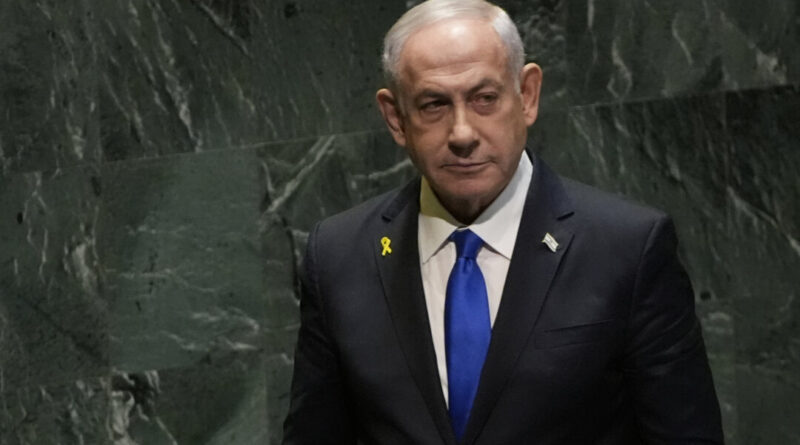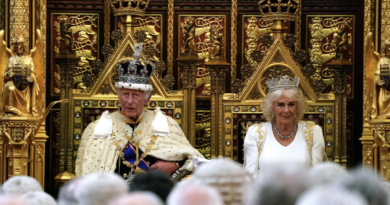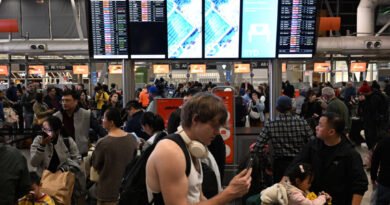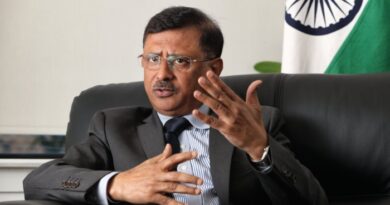Israel has reportedly killed the newest leader of Hezbollah, says Netanyahu
Israeli Prime Minister Benjamin Netanyahu urged the people of Lebanon to resist Hezbollah’s sway in their nation.
Netanyahu revealed that his forces eliminated two distinct Hezbollah members designated to take over for the late Hassan Nasrallah, the head of the internationally-recognized terrorist organization, who was killed in an Israeli airstrike on Sept. 27.
“We have weakened Hezbollah’s capabilities; we have neutralized thousands of terrorists, including Nasrallah and his successors,” Netanyahu declared.
“Today, Hezbollah is at its weakest point in many years. The Lebanese people must make a crucial decision. You have the power to reclaim your country and lead it towards peace and prosperity. Otherwise, Hezbollah will continue to use densely populated areas as battlegrounds against Israel at your expense,” Netanyahu emphasized.
In his address on Tuesday, the Israeli prime minister did not mention Nasrallah’s replacement by name.
Previously, Israeli sources hinted at Hashem Safieddine—a Lebanese Shia cleric and executive council member within Hezbollah—as a potential successor to Nasrallah.
Reports from Lebanon suggest that Safieddine may have been killed in an Israeli airstrike in Beirut’s southern neighborhoods last week. His whereabouts have not been confirmed since the reported strike.
During an Oct. 7 press briefing, Israeli government spokesperson David Mencer stated, “We do not have confirmation of his death at this time.”
Hagari mentioned that the IDF would release a statement once Safieddine’s death is confirmed.
On Oct. 8, 2023, Hezbollah launched rockets at Israeli-controlled regions in the disputed Golan Heights, shortly after Hamas militants entered southern Israel and killed about 1,200 Israelis.
Over the past year, the Israeli military has been engaged on both southern and northern fronts. In the south, Israeli troops have been fighting in the Gaza Strip to dismantle Hamas and rescue around 250 individuals who were taken captive on Oct. 7, 2023. Meanwhile, in the north, Israeli troops have been exchanging fire with Hezbollah.
Hezbollah, acting as both a militant and political group within Lebanon, has suffered significant losses in recent weeks.

People search the rubble of buildings in the Haret Hreik neighborhood of Beirut, Lebanon, on Sept. 29 following Israeli air strikes that killed Hezbollah Secretary-General Hassan Nasrallah on Sept. 27, 2024. AFP via Getty Images
A series of mysterious pager explosions on Sept. 17 and 18 resulted in casualties among Hezbollah members.
Following the pager blasts, Israeli airstrikes intensified across Lebanon, targeting Hezbollah’s leadership and military capabilities.
Last week, Israeli ground forces initiated cross-border operations into Lebanon, focusing on dismantling Hezbollah’s arms supplies and forcing their fighters to retreat further north, away from the Lebanese-Israeli border.
Hezbollah Deputy Secretary-General Sheikh Naim Qassem affirmed on Oct. 8 that despite mounting pressure from Israel, Hezbollah remains operational.
Qassem mentioned plans for an upcoming election to appoint the next secretary-general to succeed Nasrallah. He also stated that the Israeli offensive “has not weakened our resolve, nor will it deter us.”
In the same address, Qassem expressed support for Lebanese Parliament Speaker Nabih Berri’s efforts to negotiate a cease-fire in the cross-border conflict.
Previously, Hezbollah leaders declared their commitment to continue the fight with Israel until the conflict in the Gaza Strip is resolved. However, Qassem did not link a cease-fire in Lebanon with the situation in Gaza during his remarks on Tuesday.
Reuters contributed to this article.





